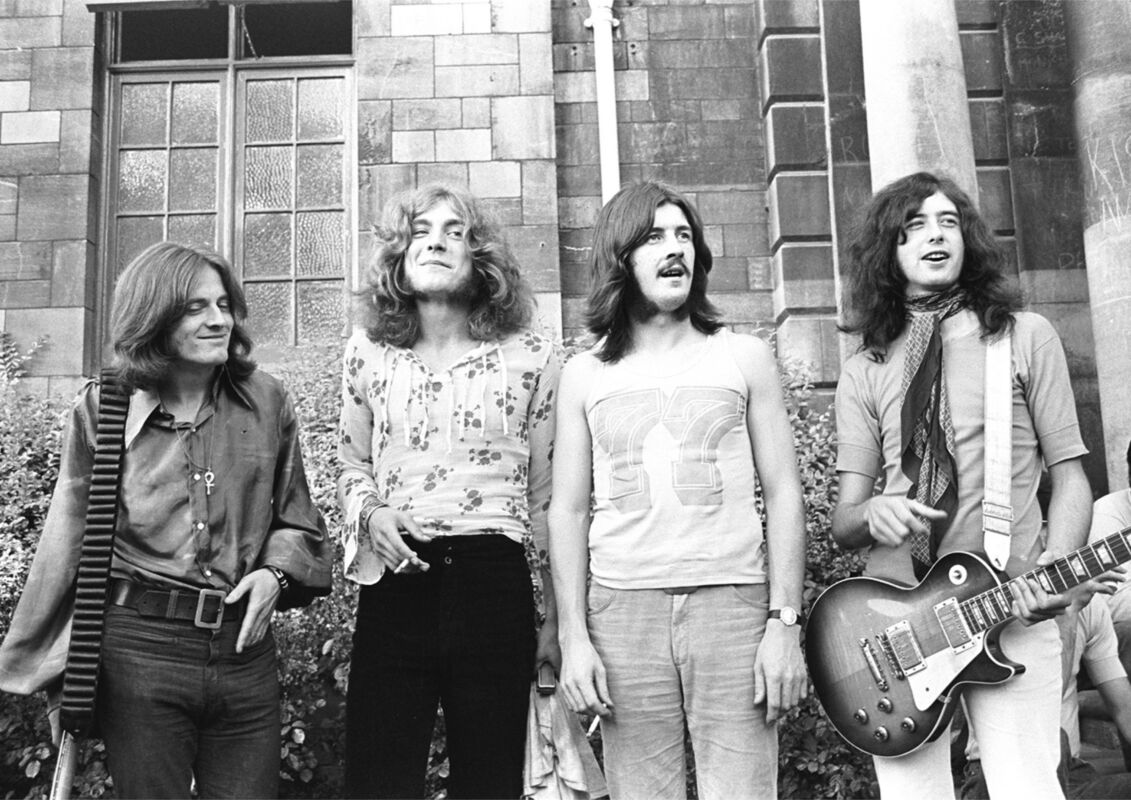On this date in 1975 Led Zeppelin released their sixth album Physical Graffiti in the UK. Recording sessions had been disrupted when bassist and keyboard player John Paul Jones had proposed quitting the band, supposedly to become choirmaster at Winchester Cathedral, England, although in reality he just needed time to rest after Zeppelin’s demanding tour schedule. The group decided on a double album so they could feature songs left over from their previous albums Led Zeppelin III, Led Zeppelin IV and Houses of the Holy.
Physical Graffiti was commercially and critically successful upon its release and debuted at number one on album charts in both the US and the UK. It was promoted by a successful US tour and a five-night residency at Earl’s Court, London, and has since been viewed as one of the group’s strongest albums and the artistic peak of their career. Physical Graffiti was later certified as 16x platinum in the US by RIAA in 2006, signifying shipments of over eight million copies.

In March 1975, Billboard magazine’s reviewer wrote: “Physical Graffiti is a tour de force through a number of musical styles, from straight rock to blues to folky acoustic to orchestral sounds.” Jim Miller stated in Rolling Stone that the album was “the band’s Tommy, Beggar’s Banquet and Sgt. Pepper rolled into one: it is Led Zeppelin’s bid for artistic respectability.”
Robert Plant, Zeppelin’s singer, felt that Physical Graffiti represented the band at its creative peak, and has since said that it is his favourite Led Zeppelin album. Reviewing the album for BBC Music in 2007, Chris Jones described it as “a towering monument to the glory of Zeppelin in their high-flying heyday.”



